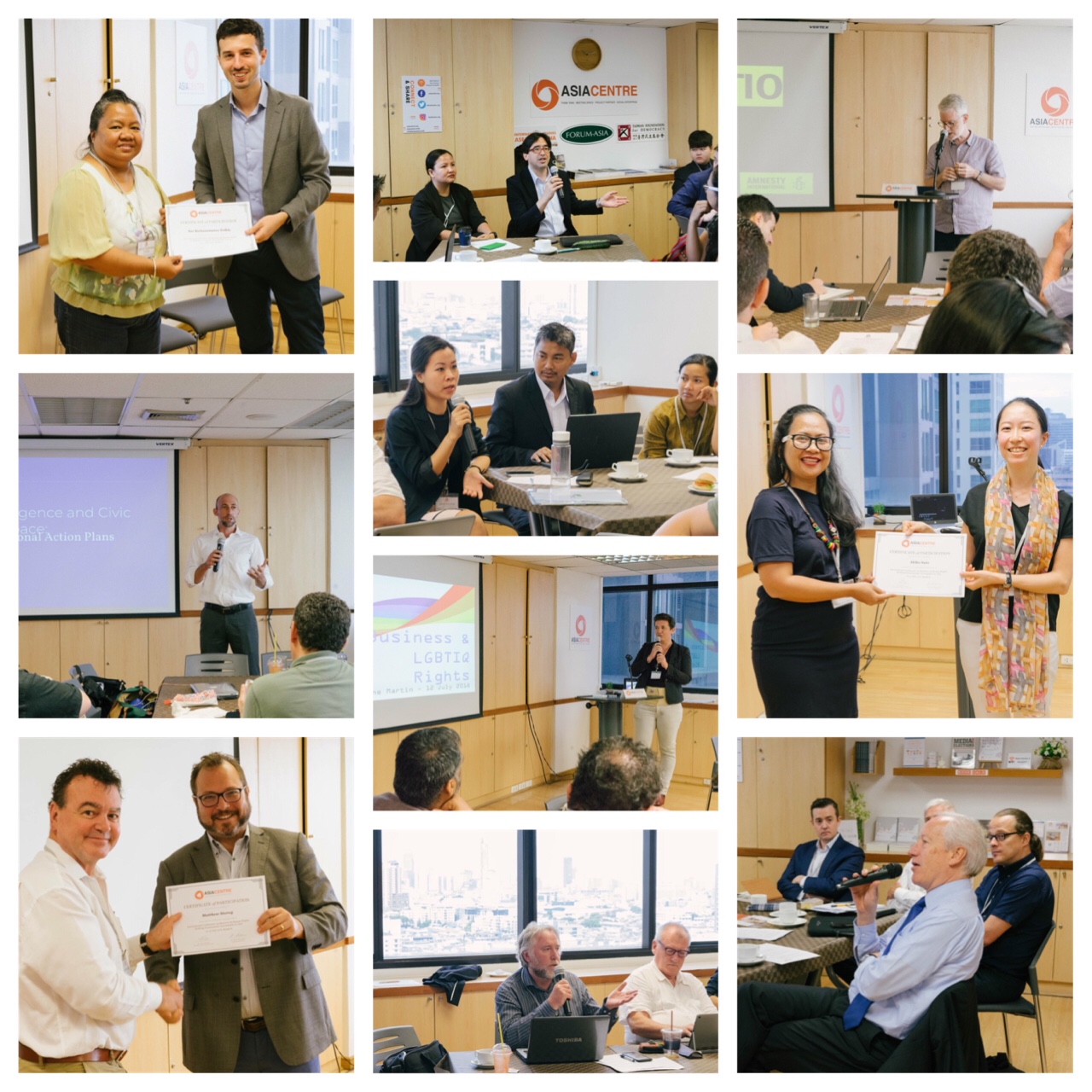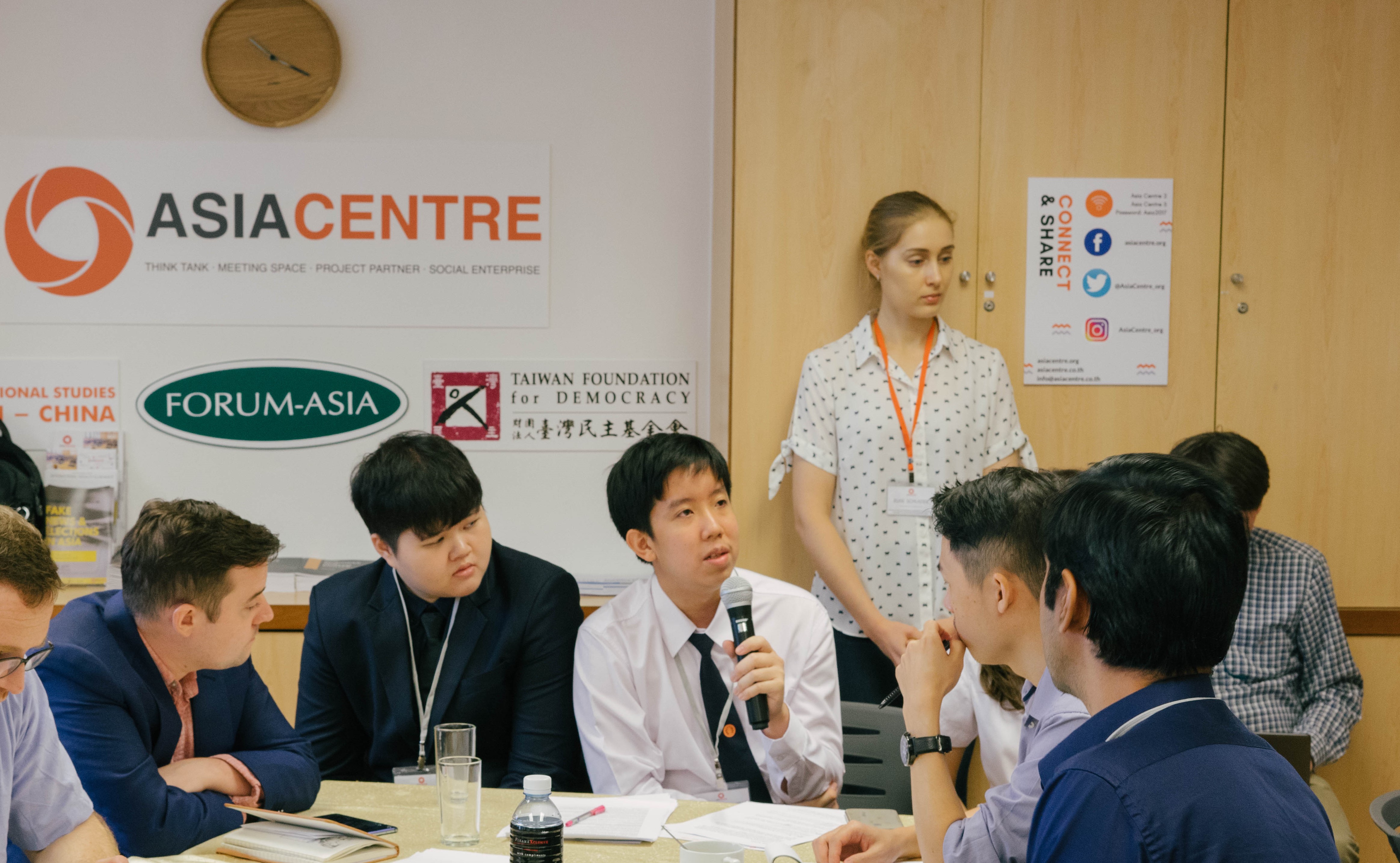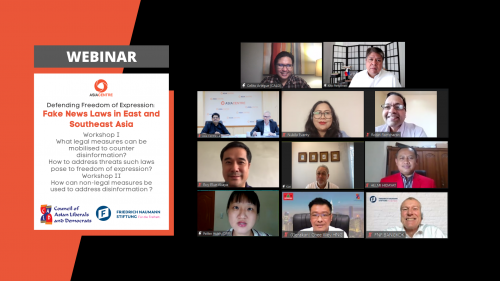The duty of the State to protect human rights and regulate the behaviour of business organizations was the focal point of discussions at Asia Centre’s International Conference on Business and Human Rights: Holding Governments Accountable in Asia (BHR Conference), held on 12 and 13 July 2018 in Bangkok. The focus on the duty of the State was deemed important by the conference participants as Asian countries increasingly consider the development of national action plans (NAPs) on BHR.

Experts from around the world analysed the multifaceted linkages between business operations and international human rights norms but circled back to point to the duty of the State to protect. They highlighted policy and legislative challenges affecting the capacity of states to uphold such norms as stipulated in Pillar One of the UN Guiding Principles (UNGPs) on Business and Human Rights.
Asia Centre Conferences: Designed for Discourse
The conference hosted over 50 participants from a variety of organisations including universities, NGOs and INGOs. The conference’s program can be found here. During the nine panels, a variety of interconnected topics in relation to business and human rights were presented, questioned and discussed. Watch the conference’s video here. The compiled conference procedure is available here.
Day one
The first day’s presentations discussed BHR perspectives on a regional basis, national strategies and policies, the interaction of Multinational Corporations, and accountability in infrastructure, development and consumer-oriented business.
While NAPs on BHR by Governments are welcome, Dr. Seree Nonthasoot, Thailand’s representative to the ASEAN Intergovernmental Commission on Human Rights (AICHR), reminded participants in his guest appearance, NAPs should not provide a means for States to neglect their existing obligations under international law.
 Likewise, participants pointed out that voluntarist corporate social responsibility (CSR) undertakings by business organisations are not the same as a human rights based approach in the UNGPs. Many at the two day conference felt that on occasions CSR was just a publicity tool that companies used for branding purposes and not a commitment to human rights principles.
Likewise, participants pointed out that voluntarist corporate social responsibility (CSR) undertakings by business organisations are not the same as a human rights based approach in the UNGPs. Many at the two day conference felt that on occasions CSR was just a publicity tool that companies used for branding purposes and not a commitment to human rights principles.
Day two
On the second day, the accountability of labour rights violations and indigenous and land rights were noted. The conversations continued over environmental protection as well as technologies and innovation in the business sector.
Presentations were made by over 40 specialists on a broad range of issues such as the interdependence of the three pillars (protect, respect and remedy) of the UNGPs. They also discussed violations of land rights, indigenous peoples’ rights, mining, environment and labour rights. The increasing impact of Chinese business interests in Southeast Asia was also raised.
Wrapping up – Humanity at the centre of discussions
To wrap up the proceedings, a closing panel considered innovative, cutting edge research on the relationship between human rights and architecture, artificial intelligence and smart cities. Participants discussed the need to place the human being at the centre of all discussions as society becomes dominated by innovation and technology.
 The BHR Conference, in partnership with Forum Asia and Thammasat University ASEAN-China program and supported by the Taiwan Democracy Foundation, is the third human rights conference by Asia Centre that reviewed the contemporary challenges in Southeast Asia and the wider region through evidence-based research.
The BHR Conference, in partnership with Forum Asia and Thammasat University ASEAN-China program and supported by the Taiwan Democracy Foundation, is the third human rights conference by Asia Centre that reviewed the contemporary challenges in Southeast Asia and the wider region through evidence-based research.
The conference inspired Asia Centre’s publication Business and Human Rights in Asia: Duty of The State to Protect. It examines the State’s duty to protect amidst rising concern over the human rights impact of business organisations in Asia.


